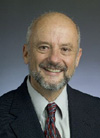 | Tuesday, January 3, 2006 |
|
Tuesday, January 3
Wednesday, January 4 |
|
Extended Forecast |
Secon Level 3 |
|
Tuesday, January 3 -Chicken & Rice Soup -Cowboy Burger -Baked Meatloaf w/a Roasted Tomato Demi-Glace -Smart Cuisine Parmesan Baked Fish -Ham & Pastrami Calzones The Wilson Hall Cafe accepts Visa, Master Card, Discover and American Express. |
|
Wednesday, January 4
Thursday, January 5
Chez Leon Menu |
| Fermilab Today is online at: http://www.fnal.gov/today/ Send comments and suggestions to today@fnal.gov Fermilab Today archive Fermilab Today PDF Version Fermilab Result of the Week archive Fermilab Safety Tip of the Week archive Linear Collider News archive Fermilab Today classifieds Subscribe/Unsubscribe to |
|
From The New York Times, December 27, 2005: Quantum Trickery: Testing Einstein's Strangest Theory Einstein said there would be days like this. This fall scientists announced that they had put a half dozen beryllium atoms into a "cat state." No, they were not sprawled along a sunny windowsill. To a physicist, a "cat state" is the condition of being two diametrically opposed conditions at once, like black and white, up and down, or dead and alive.
These atoms were each spinning clockwise and counterclockwise at the same time. Moreover, like miniature Rockettes they were all doing whatever it was they were doing together, in perfect synchrony. Should one of them realize, like the cartoon character who runs off a cliff and doesn't fall until he looks down, that it is in a metaphysically untenable situation and decide to spin only one way, the rest would instantly fall in line, whether they were across a test tube or across the galaxy.
|
| A Defining Year | ||
As we embark on this New Year we do so with great expectations and resolve.
While we are enthusiastic about this plan, the scientific community through several committees has yet to make its recommendations. Although these committees are only advisory and our government agencies will make the final decisions on all parts of the program, the recommendations of these committees will play a critical role in our ability to carry out the roadmap we propose. Overarching these committees is EPP2010, the National Academy Panel chartered by DOE and NSF to give advice on the future US particle physics program. It will report later in the year. Strong support for the ILC from this committee that represents a broad spectrum of the scientific community is absolutely crucial in our ability to move forward with the ILC. Other parts of the future program, both accelerator and non-accelerator based, will also be the subject of recommendations by EPP2010, the Neutrino Scientific Assessment Group (NuSAG) and the Dark Energy Task Force (DETF) and future specialized advisory groups of HEPAP. The Particle Physics Project Prioritization Panel (P5) of HEPAP will also render advice on present facilities and how long their exploitation continues. We will receive all of this input in the year 2006. We can then work with the agencies to chart a plan that we, our colleagues in particle physics and our funding agencies can commit to and carry forward. While committees can be helpful, the future will be, as it always is, largely in our own hands and critically dependent on how we perform. In this New Year we will determine the path we should take on the ILC after we work with the International Community to complete the Reference Design Report and cost estimate. We will start commissioning the LHC and we will determine the schedule we can maintain for completion. We will push for higher luminosity in the Tevatron and learn how far we can go in the next three years. We will improve the sensitivity for various searches that can be achieved with D0 and CDF, something we will know by the summer. We will learn whether the neutrino world is "as expected" or surprisingly different when the results of MINOS and MiniBoone are reported and we will pursue and hopefully receive support for the fast start that we need on the NOvA neutrino project, the Minerva neutrino experiment and the Dark Energy Survey project. 2006 promises to be an extraordinarily exciting and defining year for Fermilab. |
|
Time Sheets Due Weekly Time Sheets for the week ending January 1, 2006 are due in Payroll by 10:00 a.m. today (January 3). Revisions for the week ending December 25, 2005 are due in Payroll by 9:00 a.m. today. |

